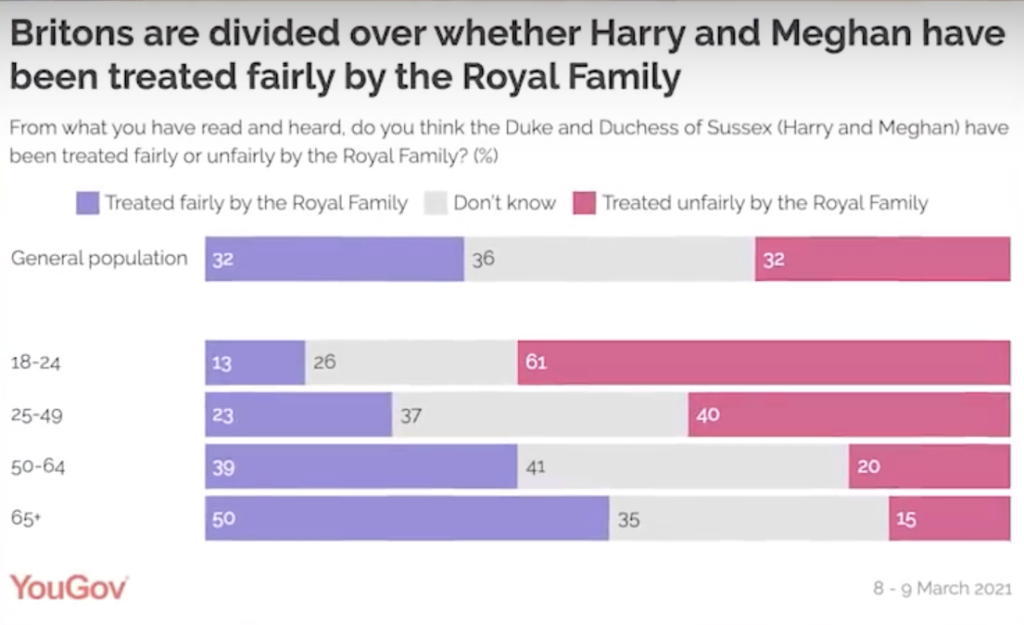by Lauren V. Williams
The introduction of a biracial woman of color into one of the world’s oldest white institutions was the perfect opportunity for the Royal Family to become true leaders in a society that is struggling with change and racial divisions. However, Harry and Meghan’s allegations of the firm’s racism and neglect may have jeopardized the future relevancy of the institution in an increasingly multicultural world.
If the Royal Family had integrated Meghan, a non-aristocratic woman of color, into their family, they would’ve solidified their durability during an unprecedented age of change. More and more, people are questioning institutional authority. This trend has disrupted the norms of sexism, racism and economic inequality. The Royal Family is one of the biggest vestiges of colonialism and classism. Therefore, they are uniquely vulnerable to these turbulent times of change. As an institution that no longer has governmental power, the Royal Family must rely on reputation and respect. If they want to survive through the opinion of the masses, they must ride with cultural tides of masses.
Instead, the Royal Family allowed itself to play into the same narrative of Brexit and Trumpism: white backlash against people of color’s fight for equality. Despite the family’s reputation for silence and coldness to outsiders, not protecting Meghan Markle ultimately appeared as complicity.
The attacks against Meghan were different from Diana or Fergie. They had a clear undercurrent of racial animosity. They referenced monkeys, crime and low-classness. In addition, Harry and Meghan’s allegation that a relative had asked about Archie’s skin color eventually turned the perception of the family’s complicity into a perception of culpability.
The Royal Family’s image may be irrevocably damaged. Many people are now reexamining Britain’s past of colonialism and the enduring negative effects that it has today. Many of Britain’s former colonies still struggle with economic destabilization, political strife and even deep-seated colorism. Recent events now connect the public’s perception of the family’s sins of the past to their behavior in the present. Now they wonder whether they should follow the leadership of the family at all.
Nicholas Sengoba, a journalist from the former colony of Uganda, asked whether the heads of Commonwealth countries should still be “proud to eat dinner” with the Royal Family.
Leaders in Australia, Kenya, India and more former colonies have made similar statements.
Perhaps even more tellingly, 61% of British Gen Z, the most diverse generation in history, believe that Harry and Meghan were treated unfairly. 67% of Americans, residents of the country most famous for its racial divisions, think the comments about Archie’s skin color were racist.

The Royal Family wants to be a symbol of leadership in the world. Our society is becoming steadily more multicultural economically, politically and demographically. The legacy of colonialism and slavery has caused many people of color to doubt their beauty, marriageability and respectability because of the color of their skin. It’s what makes the comments about Prince Archie all the more damaging. Yet, in this era of change, more people are demanding better. If the Royal Family can’t meet this challenge, they may create a future where they are no longer a leader at all.


